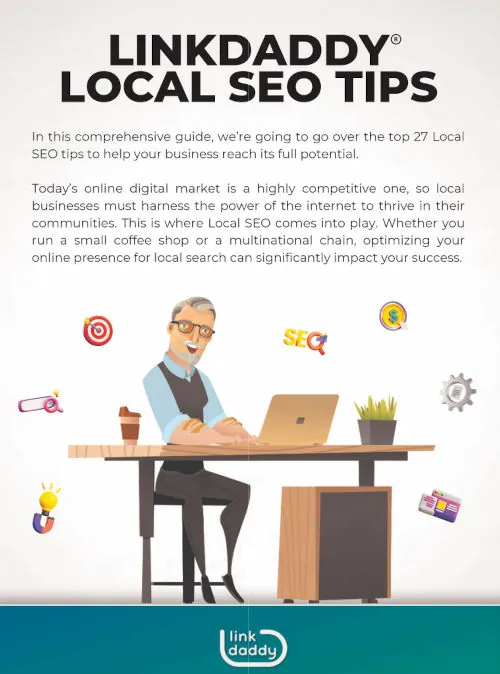
Digital marketing has become much more complex over the years. 30 years ago, digital marketing strategies were focused on a few basic tactics such as email marketing and banner ads. However, today’s digital marketing landscape is much more diverse and sophisticated, with a wide range of tactics and channels available to reach and engage customers.
Nowadays, digital marketing strategies are formed by using data and analytics to understand customer behavior, demographics, and preferences. This allows businesses to create highly targeted and personalized campaigns that are more likely to resonate with their target audience. Additionally, businesses today can use a variety of different channels to reach customers, such as social media, search engines, and mobile apps, whereas, in the past, the options were more limited.
Data privacy laws have also made digital marketing more complex. With laws such as the General Data Protection Regulation (GDPR) and the California Consumer Privacy Act (CCPA) in place, businesses are now required to obtain explicit consent from customers before collecting or using their data and must provide customers with the ability to opt out of data collection and sharing. This means that businesses must be much more transparent about their data collection practices and must be able to demonstrate compliance with these laws.
Today, digital marketing strategies are formed by using data and analytics to understand customer behavior, demographics, and preferences, and there is now a wide range of tactics and channels available to reach and engage customers.
In this article, we will cover the biggest digital marketing challenges that businesses are expected to face in 2023. With the fast-paced evolution of technology and the digital landscape, businesses must stay on top of the latest trends and strategies to stay competitive.
The challenges that we will discuss include the rise of automation and AI, the importance of data privacy, the evolution of e-commerce, and the importance of personalization. By understanding these challenges, businesses can better prepare themselves to navigate the digital landscape and stay ahead of the curve in 2023.
The Rise of Automation and AI
Automation and AI are increasingly being used in digital marketing as a way to streamline and improve marketing efforts. Digital marketers use automation and AI to automate repetitive tasks such as email campaigns and social media posts, analyze data and generate insights, and to personalize marketing messages and content.
One of the biggest advantages of automation and AI in digital marketing is that it can save time and resources for businesses. Automation can help businesses to reach more customers, more efficiently, and with more personalized messages. AI can also help businesses to understand their customers better, by analyzing data on their behavior, preferences, and demographics, which in turn can help to create more effective marketing campaigns.
However, there are also challenges that digital marketers face when trying to get results from automation and AI strategies. One of the main challenges is that automation can be costly, and it may require a significant investment in technology, software, and staff. Additionally, there is also a risk of errors and oversights when automating tasks, which can lead to poor results or negative customer experiences.
Another challenge that digital marketers face is that AI requires large amounts of data to work effectively. If the data used is not accurate or complete, the results generated by the AI may not be accurate either. Additionally, businesses may struggle to find the right talent to implement and manage automation and AI technologies.
The Importance of Data Privacy

Data privacy has become an increasingly important issue in digital marketing. With data privacy laws such as the General Data Protection Regulation (GDPR) and the California Consumer Privacy Act (CCPA) in place, businesses are now required to obtain explicit consent from customers before collecting or using their data and must provide customers with the ability to opt-out of data collection and sharing.
These data privacy laws have had a significant impact on digital marketing campaigns, as businesses are now required to be much more transparent about their data collection practices and must be able to demonstrate compliance with these laws. This means that businesses must be more careful about how they collect, use, and share customer data, and must ensure that they are not collecting or using data in ways that are not compliant with these laws.
The increased focus on data privacy can make it harder for businesses to get leads and track customer behavior. Without access to customer data, businesses may struggle to create targeted and personalized marketing campaigns, which can lead to lower conversion rates and fewer sales. Additionally, businesses may also struggle to understand their customers’ needs and preferences, which can make it difficult to create effective marketing strategies.
The Evolution of E-Commerce
The evolution of e-commerce has had a significant impact on digital marketing. With the rise of online shopping, businesses are now able to reach customers from all over the world, and e-commerce has become an integral part of many businesses sales and marketing strategies.
However, the rise of e-commerce has also brought new challenges for digital marketers. One of the main challenges is the increased competition. With more businesses now operating online, it can be harder for businesses to stand out and attract customers. Additionally, the ease of setting up an e-commerce store has led to an over-saturation of the market, making it harder for businesses to get noticed.
Another challenge for digital marketers is the need to adapt to the ever-changing technology and customer preferences. E-commerce platforms and tools are constantly evolving, and businesses need to keep up-to-date with the latest trends and technologies to stay competitive.
Additionally, e-commerce also brings the challenge of personalizing the customer experience. With e-commerce, it can be harder to establish a personal connection with customers, which can make it harder to build trust and loyalty. Additionally, businesses may struggle to personalize the customer experience as they don’t have access to the same level of data as traditional brick-and-mortar stores.
Personalization as A Necessity
Personalization is key to an effective digital marketing campaign as it allows businesses to create targeted and relevant messages for their customers. By understanding their customers’ needs and preferences, businesses can create marketing campaigns that resonate with their target audience and increase the chances of conversion.
However, data privacy laws such as the General Data Protection Regulation (GDPR) and the California Consumer Privacy Act (CCPA) have made it more difficult for businesses to create personalized digital marketing campaigns. These laws require businesses to obtain explicit consent from customers before collecting or using their data, and customers have the right to opt out of data collection and sharing. This means that businesses have fewer data on their customers, making it harder to create personalized marketing campaigns.
Another challenge faced by digital marketers is that creating a personalized digital marketing strategy can be time-consuming and resource-intensive. Businesses must first gather data on their customers and then analyze this data to understand their needs and preferences. This requires a significant investment in technology and staff, and it can be difficult for small businesses to keep up with the latest trends and technologies.
Additionally, personalization also requires understanding the customer’s journey, which can be complex. Businesses need to understand where their customers are in their journey, what they are looking for, and what type of message will resonate with them the most. It takes a lot of testing, experimentation, and data analysis to understand this and to create a personalized digital marketing strategy that works.
How To Get Past Digital Marketing Problems

To get past digital marketing problems, digital marketers should focus on creating strategies and campaigns that are aligned with data privacy laws. This means being transparent about data collection practices, obtaining explicit consent from customers, and providing customers with the ability to opt out of data collection and sharing.
One way to personalize marketing campaigns while still complying with data privacy laws is to use pseudonymous data. This type of data doesn’t directly identify a customer but still provides useful insights into customer behavior and preferences. Digital marketers can use pseudonymous data to create targeted and relevant marketing campaigns without collecting personal data.
Another way to personalize marketing campaigns is to use data collected with customers’ consent, for example, through surveys, questionnaires, or sign-ups. This data can be used to create targeted and relevant marketing campaigns, but it is important to ensure that the data is only used for the purpose for which it was collected and is protected from unauthorized access.
Additionally, digital marketers can also personalize marketing campaigns by using data from customer interactions with the business, such as purchase history, website browsing behavior, and customer service interactions. This data can be used to create targeted and relevant marketing campaigns, such as personalized product recommendations, abandoned cart emails, and personalized email campaigns.
Another strategy is to personalize campaigns using first-party cookies, which are created by the website the user is visiting, and can be used to collect data on user behavior and preferences, and can be used to create targeted and relevant marketing campaigns, such as personalized product recommendations, and personalized email campaigns.
Digital Marketing Trends To Watch Out For

There are several digital marketing trends that businesses should be aware of in order to stay competitive.
Augmented Reality Marketing: With the advancements in technology, augmented reality (AR) is becoming more accessible for businesses to use in their marketing campaigns. This technology allows businesses to create immersive and interactive experiences for customers, such as virtual try-ons for products or virtual tours of locations. To implement AR in your marketing campaigns, you can invest in AR development tools, hire AR developers, or use pre-built AR solutions such as Snapchat or Instagram filters.
Influencer Marketing: This trend involves partnering with popular social media personalities, known as influencers, to promote products or services. By leveraging the influencer’s followers and credibility, businesses can reach a new audience and increase brand awareness. To implement influencer marketing, you can research and identify influencers in your industry, reach out to them to collaborate, and create a campaign that aligns with their brand and audience.
Video marketing: With the rise of platforms such as YouTube and TikTok, video marketing has become more important than ever. Video content allows businesses to showcase their products or services in an engaging and interactive way, and it can be used in various stages of the sales funnel, such as product demonstrations, testimonials and explainer videos. To implement video marketing, you can create a YouTube or TikTok channel, invest in video production equipment, or hire a video production company.
Micro-moments: Micro-moments refer to the small but significant moments that people experience throughout their day, and businesses can use them to engage with customers. These can include things like “I want to know”, “I want to go”, “I want to do”, and “I want to buy” moments. For example, an “I want to know” moment might be when someone is searching for information on a topic, an “I want to go” moment might be when someone is looking for a nearby location, an “I want to do” moment might be when someone is looking for a recipe or tutorial, and an “I want to buy” moment might be when someone is looking for a product or service to purchase.
By understanding these micro-moments, businesses can tailor their marketing efforts to meet the specific needs and wants of customers at the exact time they are searching for them. This can include creating targeted ads, optimizing website content, and providing relevant information. For example, a business might create an ad campaign targeting people searching for “nearby restaurants” during the “I want to go” moment, or they might optimize their website to provide easy access to information on their products during the “I want to know” moment.
In order to identify and target micro-moments, businesses can use tools such as Google Analytics, Google Search Console, and other data analytics tools to understand their customer’s behavior and preferences. Additionally, businesses can also use keyword research tools to understand the types of search queries customers are making, and use this information to create targeted marketing campaigns.
The Bottom Line
Running effective digital marketing campaigns can be challenging, as it requires a deep understanding of the ever-evolving digital landscape and the ability to navigate through the various platforms, tools and technologies available. Additionally, the increasing emphasis on data privacy laws and regulations can make it even more challenging to create personalized marketing campaigns that resonate with your target audience.
However, despite these challenges, there is a way to move forward with digital marketing by abiding data privacy laws and getting to know your customer more intimately. By understanding the needs and wants of your target audience, you can create personalized marketing campaigns that are not only compliant with data privacy laws, but also more likely to resonate with your target audience.
By understanding your customer’s behavior, preferences, and pain points, you can create campaigns that address their specific needs and wants, and that can be delivered to them at the right time and on the right platform. In this way, you can build trust and loyalty with your customers, which is essential for the long-term success of any business.
So, don’t be discouraged by the challenges of digital marketing, instead, embrace them as an opportunity to innovate and adapt to the ever-changing landscape. With the right approach, you can create digital marketing campaigns that are both effective and compliant with data privacy laws. And remember, the key to success is to know your customer and create personalized campaigns that resonate with them.









